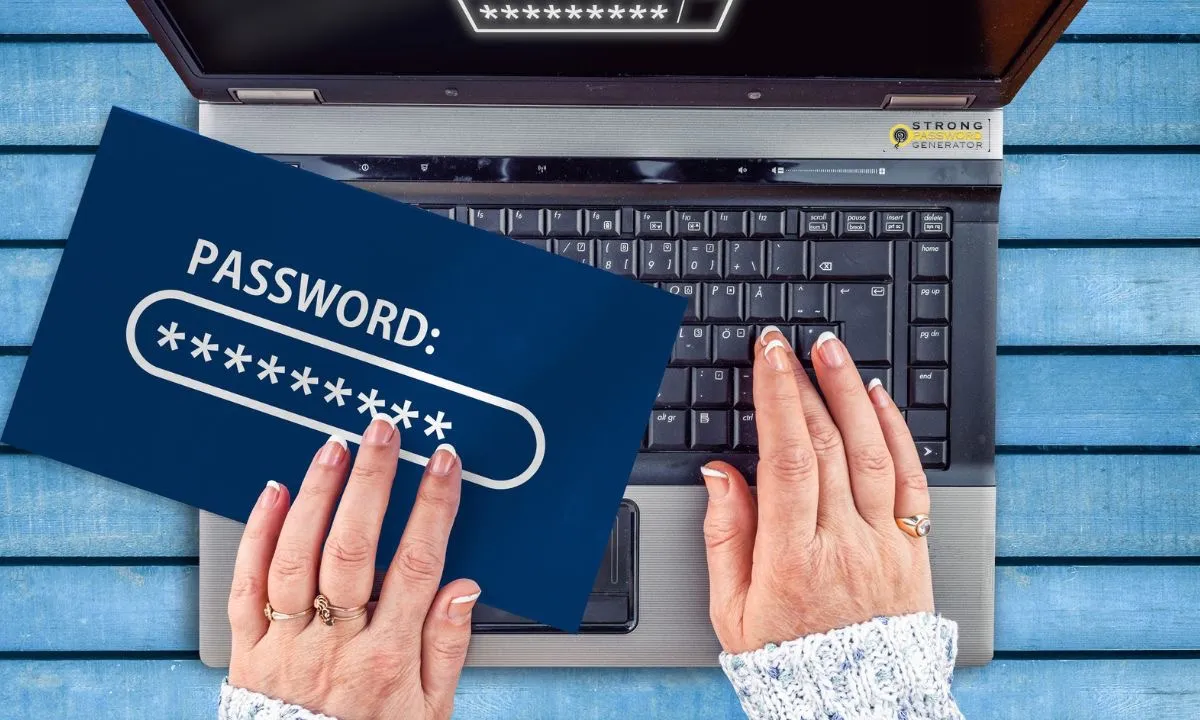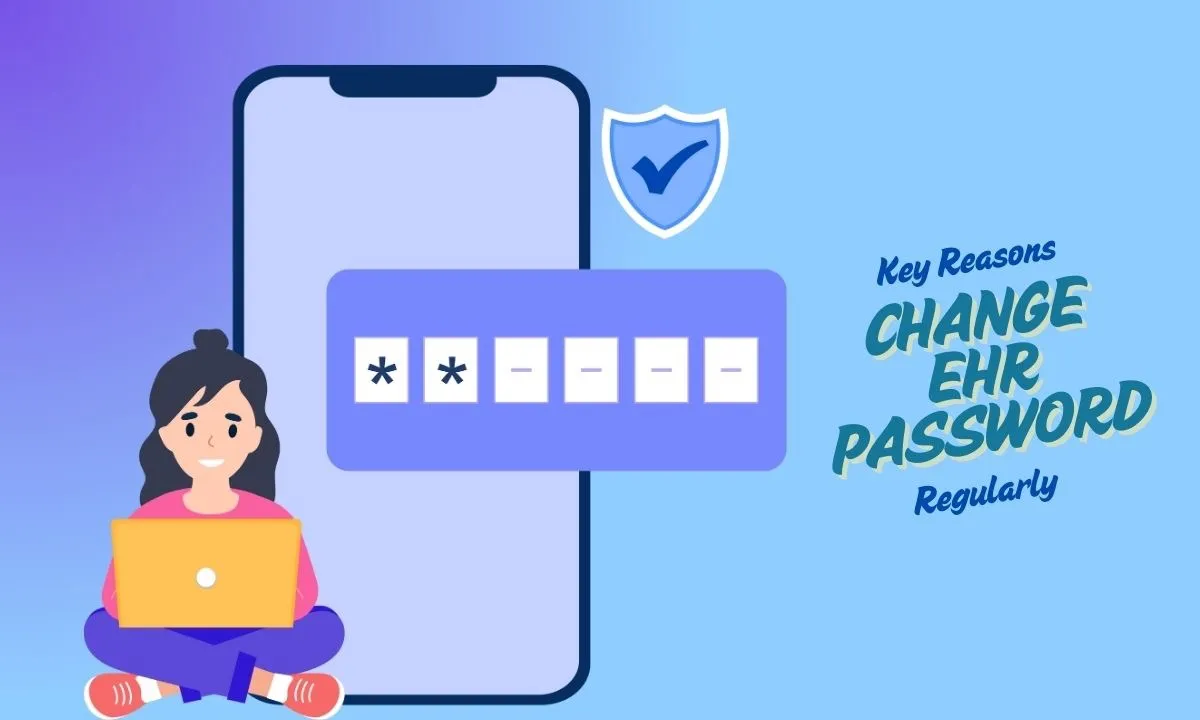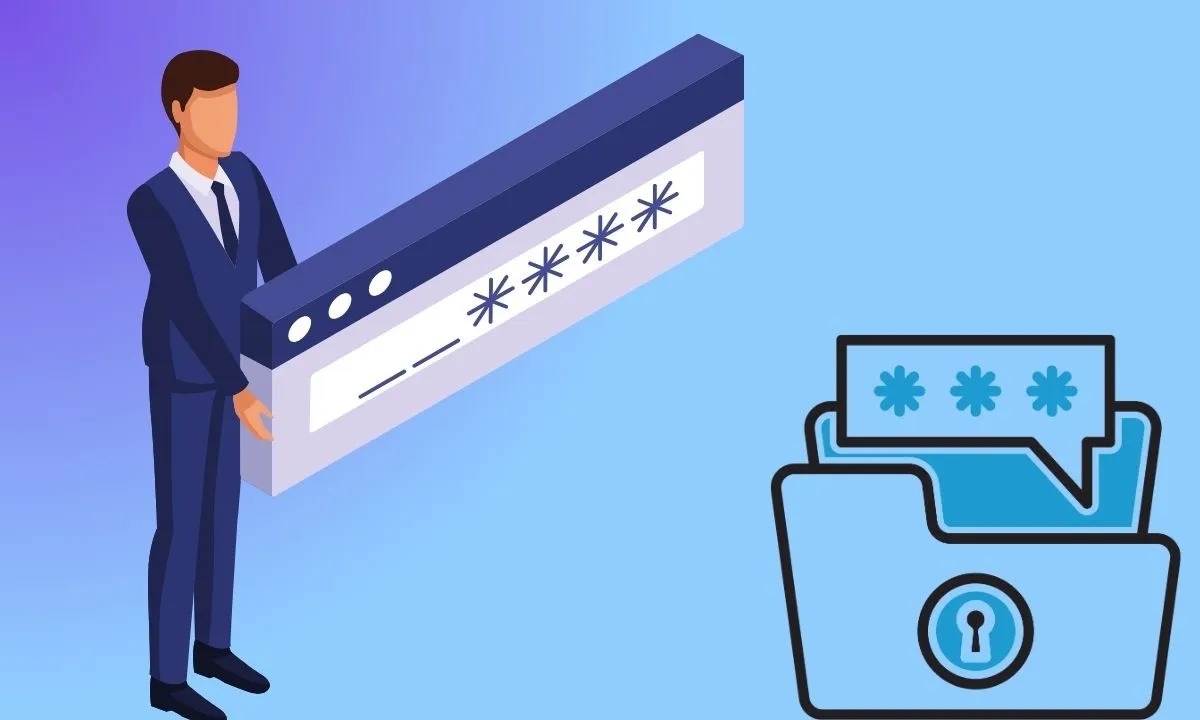
When securing your EHR system, the frequency of password changes is a crucial consideration. Current best practices recommend changing passwords every 60 to 90 days to guarantee robust security. However, the latest guidance from NIST suggests a more nuanced approach.
Instead of adhering to a strict time-based schedule, you should change passwords only when there’s evidence of compromise or a specific weakness. This shift acknowledges frequent changes can lead to weaker passwords, forcing users to use simpler options. So how can healthcare organizations stay ahead of these threats?
By implementing complex passwords, two-factor authentication (2FA), and password management tools, while also enforcing routine password updates. Let’s explore the reasons for changing your EHR password regularly, as well as the best practices to ensure maximum security.
Key Reasons to Change the EHR Password Regularly

Changing your EHR password regularly is essential for maintaining:
1. Data Security
Given the sensitive nature of the data stored in Electronic Health Record (EHR) systems, strong password management is essential for data security. Your EHR contains highly sensitive patient information, including medical histories, prescriptions, and personal identifiers, allowing unauthorized access.
Regularly changing passwords considerably reduces the risk of breaches, as stale passwords can be exploited by cybercriminals. By frequently updating your passwords, you help guarantee patient privacy and maintain the integrity of medical records.
Additionally, strong, unique passwords can thwart potential attacks, keeping your EHR system secure. Prioritizing password management not only protects patient data but also fosters trust in your healthcare practices.
2. Compliance with HIPAA
Maintaining strong password management is not just a best practice; it’s a requirement under the Health Insurance Portability and Accountability Act (HIPAA). This law mandates strict security measures to protect electronic patient health information (ePHI).
Regularly updating passwords is a key component of HIPAA’s Administrative Safeguards, aimed at minimizing security risks within healthcare organizations. By implementing these authentication protocols, you not only comply with federal regulations but also enhance the overall security of sensitive patient data.
Failing to abide by HIPAA guidelines can lead to severe fines and legal consequences, underscoring the importance of robust password management practices. Prioritizing regular password changes is essential for maintaining compliance and safeguarding patient information effectively.
3. Mitigating Cyber Threats
While it may seem inconvenient, regularly updating your EHR passwords is crucial for mitigating cyber threats in today’s healthcare landscape. Cybercriminals target healthcare data due to its high value on the black market. They employ tactics like phishing, brute force attacks, and credential stuffing to gain unauthorized access.
By changing your passwords frequently, you limit the effectiveness of any stolen credentials. This proactive approach greatly reduces the risk of ransomware attacks, data leaks, and identity theft.
4. Insider Threats
Since insider threats can often be overlooked, regularly changing EHR passwords is essential to safeguard against internal vulnerabilities. Not all security risks come from external hackers; employees can unintentionally compromise security by sharing credentials or using weak passwords.
By enforcing regular password updates, you greatly reduce the chances of unauthorized internal access. This practice not only curtails password-sharing behaviors but also guarantees that former employees can’t access sensitive systems after leaving your organization.
In addition, changing passwords regularly encourages staff to be more vigilant about their digital practices.
Best Practices for EHR Password Management

When managing EHR passwords, implement complex passwords that resist easy guessing.
Complex Passwords
Creating complex passwords is essential for safeguarding electronic health records (EHRs) against cyber threats, as these passwords serve as the first line of defense.
You should use a random password generator to create passwords that combine upper and lowercase letters, numbers, and special characters. This combination makes it notably harder for attackers to guess your password. Manually creating strong passwords can be challenging, leading to predictable choices.
By utilizing password generators, you guarantee each password is unique and resistant to common hacking techniques such as brute-force attacks. Remember, a strong password isn’t just about length; complexity is key.
Two-Factor Authentication
Implementing two-factor authentication (2FA) is essential for improving the security of EHR systems beyond just a password. Even the most complex password can be compromised, but 2FA requires you to verify your identity through a secondary method.
This could be a one-time password (OTP) sent via text or email, a biometric scan like a fingerprint or facial recognition, or a physical security key.
By adopting 2FA, you greatly reduce the risk of unauthorized access, even if your password gets leaked or stolen. It’s a proactive approach that not only safeguards sensitive patient information but also strengthens overall trust in the healthcare system.
Password Management Tools
Guiding through the complexities of password management in EHR systems can be intimidating, but utilizing password management tools is a savvy solution. These tools help you keep track of multiple complex passwords, eliminating the temptation to use simple ones that are easy to hack.
By securely storing and auto-filling your credentials, they streamline your login process, saving you precious time. Furthermore, most password managers come with integrated password generators, ensuring you create strong, unique passwords for each login.
This not only enhances your security but also aligns with best practices for EHR password management. Embracing these tools will greatly reduce your risk of breaches, allowing you to focus more on patient care and less on password woes.
What is the benefit of using a password manager for EHR systems?
While managing multiple passwords can be intimidating, using a password manager for EHR systems greatly improves security and efficiency. These tools securely store and organize your passwords, considerably reducing the risk of forgetting your credentials or resorting to weak, reused passwords.
By centralizing access, a password manager streamlines your login process, saving time and minimizing frustration. Additionally, many password managers come equipped with a password generator, allowing you to create strong, unique passwords tailored for each account.
This not only strengthens your overall security posture but also conforms to best practices for safeguarding sensitive health information.
Think of Your Password as a Castle Wall — Keep It Strong and Updated!
In a world where cyber threats lurk around every digital corner, changing your EHR password regularly is more essential than ever, it’s like fortifying a castle against an army of hackers! Embracing a balanced approach not only keeps your sensitive patient data secure but also complies with evolving regulations.
By following best practices and considering a password manager, you’re not just protecting information; you’re safeguarding trust in healthcare. So, don’t wait for a breach, act now to secure your digital fortress!
